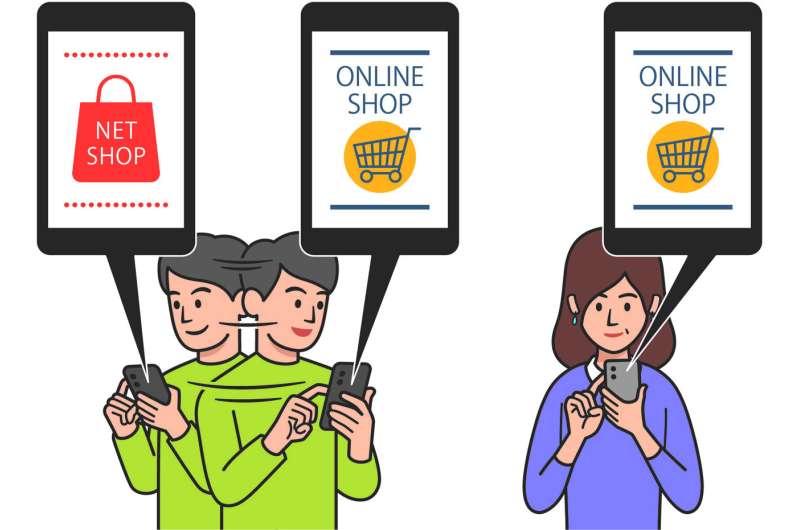This article has been reviewed according to Science X's editorial process and policies. Editors have highlighted the following attributes while ensuring the content's credibility:
fact-checked
trusted source
proofread
More is not always better, even when it comes to digital platforms

As with the business of logistics, where having multiple routes to deliver goods to the same destination raises reliability, network-dependent consumerism depends on multiple networks having a host computer with multiple connections operating in sync.
With digital platforms for business becoming the norm, industry experience reminds us of the risks of relying on a single network and concentrating on only a few operators.
A research group including Kyoto University has studied the relationship between single-homing consumers—who use only one particular platform—and multi-homing consumers. The team presented a new framework demonstrating whether proportionately more multi-homing consumers lead to significant efficiency gains when integrating two business platforms.
"Our study is related to the economics of imperfect competition, a field covering various market-related issues that has become increasingly important as information and communication technology advances," says first author Takanori Adachi of KyotoU's Graduate School of Management and Graduate School of Economics.
The platform used in a single-homing situation naturally takes on a dominant role for consumers. However, there is a growing tendency to focus on the multihoming's need for policy guidance when considering the nature of digital regulation and policy because, proportionately, more consumers use multiple platforms.
"In addition, an increase in the degree of multi-homing needs a more considerable reduction in the cost for allowing a business consolidation. It also creates higher barriers to entry for new platform firms," explains Mark Trembley of the University of Nevada, Las Vegas.
"We must note, therefore, under multi-homing situations, competition authorities may need to be more cautious about potential harms of platform mergers and entry barriers," adds Susumu Sato of Hitotsubashi University.
Researchers must often make do with scant data availability on platform businesses.
"We were delighted that our deductive arguments based on economic theory models and public databases, such as the one used in this study, effectively provided us a clearer picture of how platform economics performs in the real world," says Adachi.
More information: Takanori Adachi et al, Platform Oligopoly with Endogenous Homing: Implications for Mergers and Free Entry*, The Journal of Industrial Economics (2023). DOI: 10.1111/joie.12345
Provided by Kyoto University




















